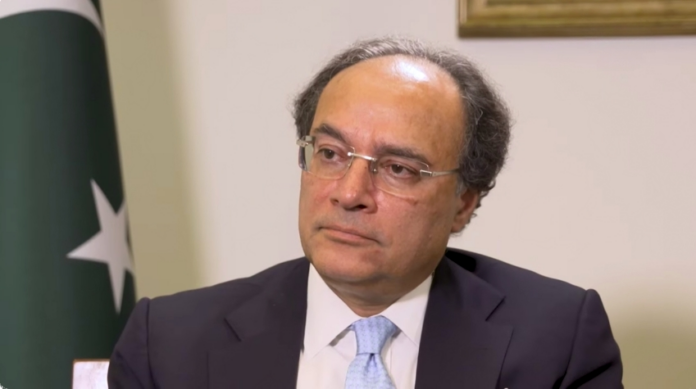Finance Minister Aurangzeb expresses confidence in securing a new IMF loan following the approval of Pakistan’s annual fiscal budget
On Sunday, Pakistan’s Finance Minister Muhammad Aurangzeb expressed strong confidence in securing a new funding programme from the International Monetary Fund (IMF) after the nation’s annual fiscal budget was passed into law. This development is crucial for Pakistan, which faces severe economic challenges as the slowest-growing economy in South Asia and is seeking to avert a debt default.
In a press conference, Aurangzeb highlighted the government’s commitment to achieving economic stability through securing the next IMF programme. He stated, “We are taking it forward; it is inevitable. I’m very optimistic that we’ll be able to take it through to the finish line for an Extended Fund Programme, which is going to be larger and longer in nature.”
Embed from Getty ImagesThe Pakistani parliament’s recent approval of the government’s tax-heavy finance bill for the upcoming fiscal year marks a significant step towards this goal. The finance bill passed on Friday, aims to address the country’s financial woes and create a foundation for the anticipated IMF loan, which is expected to be between $6 billion and $8 billion.
Earlier this year, Pakistan completed a short-term $3 billion programme with the IMF, which provided temporary relief and helped stave off a potential sovereign default. The new, larger programme is seen as essential for long-term economic stability and growth.
As Pakistan prepares for further talks with the IMF, the finance minister’s optimism reflects a broader strategy to navigate the country’s economic difficulties. The government’s focus on securing an Extended Fund Programme underscores its commitment to implementing necessary fiscal reforms and ensuring financial stability.
Analysis:
Political Perspective:
The potential new IMF programme is critical for Pakistan’s political landscape. Successfully securing the loan will bolster the current government’s standing and demonstrate its ability to manage the country’s economic crisis. Failure, however, could lead to increased political instability and opposition challenges, questioning the government’s competence in handling the economy.
Social Perspective:
From a social standpoint, the new IMF programme and the accompanying fiscal reforms could have significant implications for the Pakistani population. While the government’s tax-heavy finance bill aims to stabilize the economy, it may also place a financial burden on citizens. The success of these measures in improving economic conditions will be crucial in gaining public support and mitigating social unrest.
Racial Perspective:
Racial dynamics within Pakistan may also be influenced by the economic reforms and the new IMF programme. Marginalized communities often bear the brunt of economic hardship, and it is essential that the government’s policies address the needs of all demographic groups equitably. Ensuring inclusive economic growth can help in maintaining social harmony and reducing racial disparities.
Gender Perspective:
Gender considerations are important in evaluating the impact of the new IMF programme. Economic policies should promote gender equality by ensuring that women have access to financial resources and opportunities for economic participation. Addressing gender-specific economic challenges can contribute to overall economic stability and growth.
Economic Perspective:
Economically, the new IMF programme is pivotal for Pakistan’s financial health. The anticipated $6 billion to $8 billion loan will provide much-needed liquidity and help in managing the country’s debt obligations. The focus on fiscal reforms, including the recently passed finance bill, aims to create a sustainable economic framework. However, the success of these measures will depend on effective implementation and the government’s ability to stimulate economic growth.
